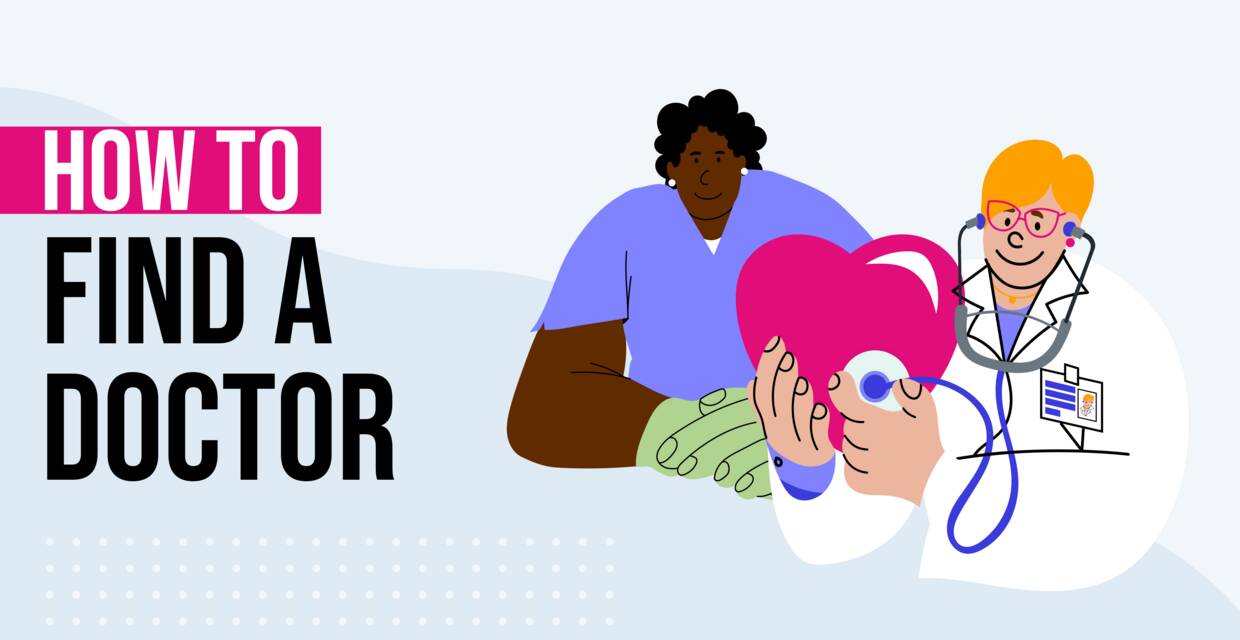Key Points
- The article provides a detailed guide on how to find a new doctor, starting with understanding the different types of doctors based on their specializations.
- A 10-step process is outlined for finding a suitable doctor, including identifying the doctor type needed, checking insurance compatibility, reading reviews, and confirming if they are accepting new patients.
- The article suggests ten questions to ask during the first appointment to better understand the doctor's practices and procedures.
- Post-appointment, patients should evaluate their experience with the doctor based on factors like comfort, understanding, and time given to ask questions.
- The article emphasizes the importance of starting the search for a new doctor and provides a comprehensive guide to assist in the process.
Finding a new doctor can be a daunting task, especially if you are new or unfamiliar with your local area. This comprehensive guide will help you decide which type of doctor to look for, how to find the best doctors in your area, and what questions to ask before deciding which doctor to trust with your care.
What Kind of Doctor Do I Need?
Every doctor has a graduate medical degree, but most will have additional training and experience in a particular specialty according to Health.gov. Here are some of the most common types of doctors according to St. George University:
- Allergist or Immunologist - Doctors who specialize in allergies and conditions related to your immune system
- Dermatologist - A doctor who specializes in skin conditions
- Neurologist - A doctor who specializes in conditions of the brain and nervous system
- Ophthalmologist - A doctor who specializes in serious eye conditions
- Cardiologist - A doctor who specializes in heart conditions
- Psychiatrist - A doctor who specializes in mental health conditions
- Gastroenterologist - A doctor who specializes in conditions of the stomach and digestive
- Urologist - A doctor who specializes in conditions of the urinary system
- Orthopedic - A doctor who specializes in conditions related to bones (including broken bones)
- Oncologist - A doctor who specializes in cancer care
- Primary Care Physician - A doctor who specializes in general or routine healthcare needs (also known as a “family doctor”)
- Obstetrician/Gynecologist - A doctor who specializes in female healthcare and birth
- Pediatrician - A doctor who specializes in the care of infants and children
- Podiatrist - A doctor who specializes in conditions of the feet
- Endocrinologist - A doctor who specializes in endocrine disorders (including diabetes)
10 Steps to Finding a Great Doctor
1. Look for a Doctor with Expertise That Meets Your Needs
To start your search for a doctor, consider your specific health needs. Using the list above may help you decide what type of doctor you need if you aren’t sure.
2. Search for Providers in Your Area
After considering what kind of doctor you need, search for specific providers in your area (e.g., “Primary care physicians in Denver Colorado”). Solv is a great place to start your search!
3. Find out Who Is in Network With Your Insurance
After you have a list of doctors in your area, Blue Cross Blue Shield recommends that you check to see if they are in-network with your insurance. To do this, they recommend that you check your insurance company's website or call the customer service number on the back of your insurance card. to find out. Blue Cross Blue Shield explains that doctors who are not in-network with your insurance may cost you more out of pocket when it comes to copays or your deductible.
4. Check out Online Reviews
Once you’ve narrowed your list down to in-network providers who specialize in the type of care you need, Blue Cross Blue Shield recommends that you check out any online reviews to see what others have to say about the doctor or clinic. They note that you should keep in mind that reviews may not always be accurate or unbiased, but they can give you an idea of the doctor's bedside manner and overall reputation.
5. Ask for Referrals
Referrals are another great way to find a good doctor is to ask for referrals, according to United Healthcare. They recommend that you ask friends, family, or your current doctor for referrals—they may be able to recommend a doctor whom they trust and have had a positive experience with.
6. Ask About Accepting New Patients
As you continue to narrow down your list of potential doctors, Health.gov recommends that you make sure the doctors you are interested in are accepting new patients. Some doctors may have a long waitlist or require a formal referral from another doctor.
7. Consider Travel Time and Appointment Availability
During your search for a doctor, it's a good idea to consider how far you are willing to travel for appointments. United Healthcare also notes that asking about appointment availability is also a good idea. This includes asking how long sick patients wait for an appointment (on average), and what the average wait times in the waiting room are. These are questions that the office receptionist or office manager of the clinic can answer.
8. Learn About Co-Pays and Telehealth Options
Another great question for the office staff is what your co-pays will be for appointments and if the doctor offers any telehealth options. Telehealth can be a convenient option for some visits, especially if you have a busy schedule or live far away from the doctor's office.
9. Make an Appointment to Establish Care
Once you have found a doctor that meets your needs, WebMD recommends making an appointment to establish care. This will allow you to meet the doctor and discuss your health history and concerns. This appointment also allows you to ask more questions (see below) and get a feel for how comfortable you are with the doctor.
10. Prepare for Your First Appointment
Once you’ve made your appointment to establish care, Healthline recommends preparing by:
- Getting together any medical or surgical records you have (you may have to call the hospitals or previous healthcare offices to request these records)
- Make a list of any major illnesses you’ve had and any chronic conditions that you currently have
- Make a list of any medications you’re currently taking
- Make a list of your family’s health history
- Make a list of any health concerns you have
Making a list will ensure you don’t forget anything during your appointment, according to Healthline.
10 Questions to Ask During Your First Appointment
When you attend your first appointment to establish care, consider the following questions listed by WebMD:
- Which hospitals is the doctor affiliated with? Are these hospitals in-network with your insurance?
- Where are routine X-rays and lab tests performed?
- How long can you expect to wait for an appointment after you call?
- Are same-day or next-day appointments available for urgent matters?
- Is the office staff friendly and knowledgeable?
- If you call with a question about your care, will you be able to speak directly with the doctor, a physician's assistant, or a nurse?
- Who covers for the doctor when they are away?
- Who do you call if you have a problem after hours?
- If the doctor works in a group, will you be seen by one of the practice partners?
- Does the office process insurance claims, or must you pay up-front for services and file the claims yourself?
8 Questions to Ask Yourself After Your First Visit or Consultation
Consider the following questions from Health.gov and Healthline as you reflect on your first visit (or consultation):
- Did the office staff, nurse, and doctor make you feel comfortable during the visit?
- Did the doctor explain things in a way that was easy for you to understand?
- Did the doctor listen carefully and respond thoughtfully?
- Did the doctor spend enough time with you?
- Did the doctor give you a chance to ask questions?
- Did you feel rushed?
- Did the doctor dismiss your concerns or interrupt you frequently?
- Would you feel comfortable talking to the doctor about sensitive or personal health issues?
Ready to find a doctor near you? Start your search with Solv!
Frequently asked questions
What are the steps to find a new doctor?
The steps include identifying the type of doctor needed, searching for local providers, checking if they are in-network with your insurance, reading online reviews, asking for referrals, confirming if they are accepting new patients, considering travel time and appointment availability, understanding co-pays and telehealth options, making an appointment, and preparing for the first appointment.What questions should I ask during my first appointment?
You should ask about the doctor's hospital affiliations, appointment availability, insurance claim process, and any other questions that might help you understand their practice better.How should I evaluate my experience after the first visit?
You should ask yourself if you felt comfortable during the visit, if you understood the doctor's explanations, if you were given enough time to ask questions, and other factors that contribute to a positive healthcare experience.What are the different types of doctors?
Doctors can specialize in various fields, such as allergists who focus on allergies, or endocrinologists who deal with hormonal issues.What should I consider when searching for local providers?
Consider factors such as the doctor's specialization, their reputation based on online reviews, and whether they are in-network with your insurance.How can I confirm if a doctor is accepting new patients?
You can usually find this information on the doctor's website or by directly calling their office.What are telehealth options?
Telehealth options refer to healthcare services provided remotely via digital platforms, which some doctors may offer.How should I prepare for my first appointment?
Prepare by noting down any health concerns or questions you have, understanding your insurance coverage, and being ready to discuss your medical history.
Solv has strict sourcing guidelines and relies on peer-reviewed studies, academic research institutions, and medical associations. We avoid using tertiary references.


 LinkedIn
LinkedIn









![Changes in DOT Annual Exams Coming in 2014 [VIDEO]](https://d1kve3ll6vvkpr.cloudfront.net/dir/media/W1siZiIsIjIwMTMvMDkvMTkvMTBfNTBfNTNfMzI0X2RvdF9jZXJ0aWZpZWRfZXhhbWluZXJfdmlkZW8ucG5nIl0sWyJwIiwidGh1bWIiLCI4MDB4NDE3IyJdLFsicCIsImVuY29kZSIsImpwZyIsIi1xdWFsaXR5IDk1Il1d/file.jpg?basename=Changes+in+DOT+Annual+Exams+Coming+in+2014+%5BVIDEO%5D&sha=b2d148127c4cf328)